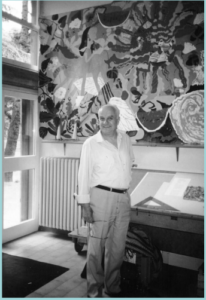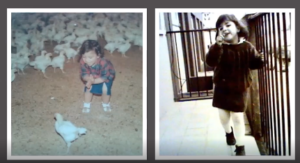To round up our final reports from the recently attended ‘Bicycles, Bricks, Vision & Determination’ conference run by Sightlines, here are reflections from Jackie Musgrave, Karen Horsley and Lucy Rodriguez-Leon. You will gather from reading their feedback that the conference proved not only to be informative but also a thought -provoking and, in many ways, empowering experience for the team.
‘Loris Malaguzzi’s pedagogical influence and contemporary importance’ – presented by Professor Peter Moss, reflections from Jackie Musgrave.
Every time I hear Peter Moss speak, I always feel sorry for him. The reason for this is that he is usually delivering similar messages about the importance of Early Childhood and how it has been even more overlooked over the last 10 years or so, for instance the situation in relation to the pay and status of the workforce, the lack of commitment from government to invest and so on. So each time I hear Peter speak he sounds more despairing of the situation. However, I was intrigued when I attended this conference because he sounded really hopeful.
Peter spoke about Malaguzzi’s influence on Early Childhood on what would have been his 100th birthday, well actually 101st because the conference was meant to happen last year. I am always fascinated by the historical context of issues and this was explained very clearly in the presentation. Reggio Emilia approaches emerged in response to the influences of fascism in Italy following the second world war. Malaguzzi was conscious of the dangers of people conforming and obeying the fascist rule, and especially aware of the impact on children. Consequently he developed a vison of children thinking for themselves which influenced his pedagogical approach. Therefore, the Reggio Emilia philosophy was born out of adversity and the desire by Malaguzzi to recognise the richness of children, their 100 languages and to remind us that children are citizens with rights. He recognised that societies can rob children of their 100 languages.

Peter highlighted, how. 75 years after the end of the second world war, we are now in another global crisis which is curtailing children’s rights in a similar way; children are being denied their right to education, health and play. This is where I got really hooked in; Peter stated that crisis can bring opportunity to help shape and create positive impact. He reminded us of Malaguzzi’s beliefs about the importance of language, not just for children, but for all of us. He urged us to use affirmative language in the words we select. I took this to mean that we can use this opportunity to change the discourse around children, avoiding deficit language, promoting the affirmative, engendering a sense of hope, encouraging us all to take responsibility, demonstrating the power of the collective.
So how can we as Early Childhood @ the Open University use language to make a positive impact for the children we indirectly work for? Via twitter, in our writing and research, at conferences, within and beyond The Open University? Let’s discuss….
‘Democratic alternatives in education: Provocations from the Portuguese MEM (Modern School Movement)’ – presented by Dr Diana Sousa, reflections by Karen Horsley.
Diana began with her own Early Childhood memories (childhood photographs) as a time when she experienced the freedom to be, discover herself and begin to understand the values of democracy. She was part of the first generation of young children in Portugal to experience kindergarten, which were introduced as part of the democratic shift in education at the fall of the country’s dictatorship in 1974. So like Reggio, the movimento da escola moderna (MEM)/ Modern School Movement emerged from the mid 60’s from the ‘jolt’ of dictatorship.

MEM was started by 6 teachers in the mid -1960s who began exchanging their ideas about democratic education at a time when such ideas were supressed by the dictatorial powers that were in control of Portugal. It has similar beginnings to the developments in Reggio in recognising that democracy does not evolve naturally, its development cannot be taken for granted but requires nurturing through participation.
As a pedagogical movement MEM is informed by the thinking of Freinet (cooperative pedagogy); Helen Keller (inclusive practices), Vygotsky, Bruner and Freire. Teachers are regarded as both actors for social change as well as being learners. They interrogate the idea of democracy and also whether children, parents and professionals have the freedom they need to express who they are and who they want to be within the Early Childhood Education community. Everyone’s participation is integral.
Diana then took us through how the principles of MEM are enacted in Portuguese early childhood settings. Key points were:
- An emphasis on intergenerational groupings
- Flexible use of space organised by the participants
- Each morning the children’s council meets where children decide what they will do for the day
- There is rich ongoing project work – child led with members of the community coming in.
- Emphasis on slow pedagogy- this level of participation needs time
- Rich texts and documentation by the children are used to make their experiences visible – ‘texts’ include drawing, writing and thinking.
Diana ended the presentation with a thought- provoking quote from Sousa Santos
‘Alternatives are not lacking in the world. What is indeed missing is an alternative thinking of alternatives’ (Sousa Santos, 2019, online)
‘Truths and Transformation – where now and how?’ Panel and Discussion with Peter Moss, Karyn Callaghan and others, reflections by Lucy Rodriguez-Leon.
I attended this final session of the Sightlines conference. It was really inspiring to participate in discussions with practitioners here in the UK, and from across the globe. The session was mostly breakout group discussions, for delegates to pick-up the themes and topics from previous sessions such as the ‘right to subjectivity’, children’s competencies and democratic education.
There were a few key take-away messages that caught my attention.
- The power of community within Early Childhood Education Care. The sector needs to work together to develop a powerful collective voice. The incredible work in Italian communities and in Portugal are all examples of what can happen when a few women come together with conviction and purpose.
- Trust should be reciprocal – When children come to ECEC settings, they place an enormous amount of trust in practitioners, trust that they will be kind, fair, keep them safe and provide for their physical, social and emotional needs. In return, we need to trust children, trust that they are the experts in their own lives and capable of seeking out the experiences that will enable them to develop.
- Reggio is not a ‘one-off’ – these movements are widespread across Italy and other countries. There are numerous examples of ‘doing things differently’ – and examples of community approaches to ECEC that sit within a global progressive education movement.
- Collectively, there can be a push-back against the accountability culture and a change in perspective of what actually matters for young children. Much of what is measured, doesn’t matter, and what really matters, often can’t be measured.
- Optimism and invitation – antagonism between the sector and policy makers is not helpful. As a community, we can ‘invite’ wider society to see things differently and move forward in small steps.
It was notable that many of the themes discussed and debated aligned with perspectives in our Early Childhood modules (E109, E110, and E229) which reminded me that, as the Higher Education provider for so many EC students, we really are integral to the ECEC community and sector.

Having just (nearly) finished E109 I could recognise similarities between your reflections Lucy of the panel discussion and the module too and I agree that the module and team, and OU overall are ‘on the ground’ of early years provision setting us students up with the correct foundations we need to be effective practitioners. I love the peek of the history behind the Reggio Emilia approach about setting children up from the word go to stand in their power and also the idea from MEM about intergenerational groupings. Sounds like a fab conference overall thanks for reporting back! 🙂
A lovely comment on a lovely post Kathleen! We are so pleased you found E109 such a useful module and hope you are continuing your studies with us.